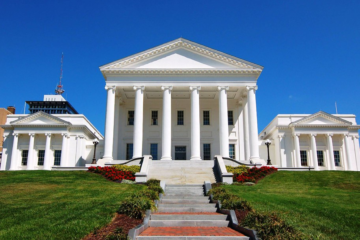A legal battle over Nebraska’s medical marijuana legislation took a dramatic turn as former Senator John Kuehn amended his lawsuit to target broader sections of the state government. Kuehn, a staunch opponent of marijuana legalization, claims that the voter-approved measures violate federal law and place an unconstitutional burden on state agencies and officials.
A Legal Battle Over Voter-Approved Measures
Nebraska voters passed two medical marijuana initiatives in November 2024. Initiative Measure 437, which legalized the use of up to five ounces of medical marijuana with a doctor’s recommendation, gained 71% support. Initiative Measure 438, which established a regulatory commission, received 67% approval. Both measures went into effect on December 12, 2024.
Kuehn filed his initial lawsuit in December, targeting Governor Jim Pillen, Secretary of State Bob Evnen, and the measures’ sponsors. His amended complaint now implicates additional parties, including:
- The Nebraska Liquor Control Commission, designated as the Nebraska Medical Cannabis Commission under the new laws.
- State Treasurer Tom Briese and Tax Commissioner Jim Kamm, tasked with collecting medical cannabis sales taxes.
- Steve Corsi, CEO of the Nebraska Department of Health and Human Services (DHHS), overseeing compliance by medical practitioners.
“In November 2024, taxpayers paid for two statewide votes which together sought to obtain an objective that was unconstitutional, unlawful and impossible: the legalization of the manufacturing, dispensing, and profiting from marijuana products for so-called medical purposes,” the amended lawsuit states.

Federal Law and Marijuana’s Legal Status
At the core of Kuehn’s argument is marijuana’s classification as a Schedule I drug under federal law, placing it alongside substances like heroin and LSD. As such, Kuehn contends that no state can legalize marijuana without defying federal law.
However, the federal government is reconsidering marijuana’s status. A proposed reclassification to Schedule III would acknowledge its medical uses and lower its abuse potential. This shift could significantly affect arguments like Kuehn’s but has yet to be finalized.
Expanding the Constitutional Argument
The amended lawsuit claims that Nebraska’s medical marijuana laws force state agencies to violate federal law and misuse taxpayer funds. Key points from the amended complaint include:
- Sales Tax Compliance: The State Treasurer’s Office and Department of Revenue are accused of facilitating money laundering by taxing cannabis, which remains federally illegal.
- Regulatory Oversight: The Nebraska Medical Cannabis Commission, comprising members of the Liquor Control Commission, is tasked with developing regulations for cannabis sales.
- Health Practitioner Monitoring: DHHS is responsible for investigating disciplinary complaints against healthcare providers who recommend cannabis. Kuehn argues this requires enforcing compliance with federal law, creating a constitutional conflict.
A History of Opposition
This lawsuit marks Kuehn’s second legal challenge to Nebraska’s medical marijuana measures. His initial lawsuit, which sought to block the measures from appearing on the ballot, was rejected by Lancaster County District Judge Susan Strong in November. Kuehn appealed to the Nebraska Supreme Court, but a hearing has not yet been scheduled.
Judge Strong is also presiding over the current case, having previously denied Kuehn’s emergency attempt to prevent the laws from taking effect.
Political and Legal Implications
Nebraska’s legalization measures have stirred significant controversy. Governor Pillen and Attorney General Mike Hilgers have expressed concerns about the measures’ legality under federal law. Meanwhile, the Nebraska Medical Cannabis Commission is moving forward with its mandate to regulate cannabis sales.
The outcome of Kuehn’s legal efforts could have wide-reaching implications, not just for Nebraska but for other states grappling with similar conflicts between state and federal cannabis laws.



